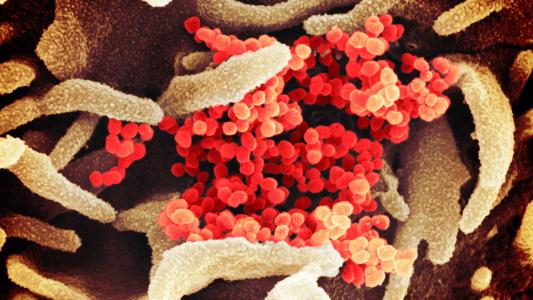Stem cells found in the umbilical cords of newborn babies may provide life-saving care for people with a serious case of coronavirus.
These kinds of cells have a remarkable capacity to self-renew and regenerate damaged tissue, making them a prime candidate for healing respiratory systems.
A team at the University of Miami enlisted 24 patients who were hospitalized at the Jackson Memorial Hospital. All of them had developed severe acute respiratory distress syndrome after contracting COVID-19.
In the double-blind study, the patients and even the doctors didn’t know if they were delivering an infusion of mesenchymal stem cells or a placebo. Each patient received two infusions, just days apart. After the infusion with over 200 million stem cells, the cells migrated naturally to the lungs.
“(The umbilical cord) is a unique resource of cells that are under investigation for their possible use in cell therapy applications, anytime you have to modulate immune response or inflammatory response,” said study lead Camillo Ricordi, adding that a single umbilical cord can provide enough doses to help over 10,000 patients.
“We’ve been studying them with our collaborators in China for more than 10 years in Type 1 Diabetes, and there are currently over 260 clinical studies listed in clinicaltrials.gov for treatment of other autoimmune diseases.”
In this small study, the team found that the stem cell infusions could greatly reduce the risk of death and hasten recovery time, even for patients with severe cases of COVID-19.
One month after the COVID treatment, the survival rate was 91% for those who received the stem cell treatment, versus 42% for people who got the placebo. Every patient younger than 85 years old who received the stem cell treatment survived at one month.
Recovery time was also quicker for those who received the treatment — with more than half going home from the hospital less than two weeks after the second infusion. Their work is published in STEM CELLS Translational Medicine.
The researchers were impressed with how well the treatment worked.
“It’s like smart bomb technology in the lung to restore normal immune response and reverse life-threatening complications,” said Ricordi.
When the pandemic set in, Ricordi asked collaborators in China if they had looked into stem cell research for coronavirus — they had, and often with success. But Ricordi wanted to take the research up a notch by ensuring the study was randomized, and there was a control group (receiving a placebo) with which to compare results.
In the future, Ricordi would like to study if stem cells could help COVID-19 patients before they become severely ill, possibly slowing the disease’s progression.
We’d love to hear from you! If you have a comment about this article or if you have a tip for a future Freethink story, please email us at tips@freethink.com.
